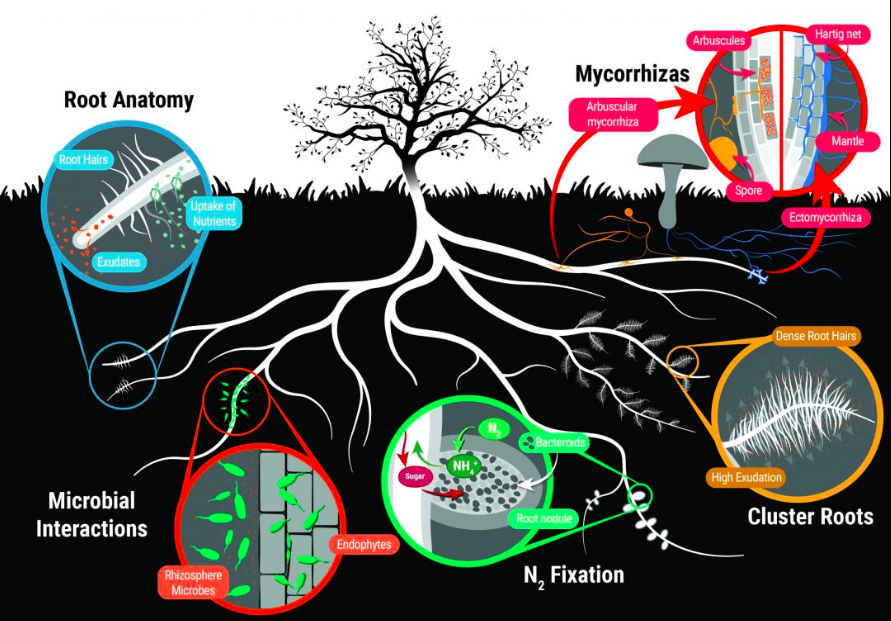[ad_1]
Inside months of becoming a member of the U.S. Marine Corps, Colin Archipley was headed to struggle. “He went proper from bootcamp to Iraq,” spending seven months on the entrance traces, says his spouse Karen, referring to the 2003 US-led army invasion. After a half-year return to Camp Pendleton close to San Diego, he repeated the cycle twice: a deployment to Fallujah adopted by a short reprieve again in California, after which a last tour in Haditha, simply as Iraq’s western province grew to become a hotspot.
Affected by extreme post-traumatic stress, Archipley was able to retire after his four-year enlistment. “You don’t come again with out harm from that,” says Karen. But trying out of the armed forces, the couple got here to seek out, was a surprisingly abrupt process with scant help. At the moment, the Division of Protection’s (DoD) Transition Help Program, which was developed in 1991 to clean the shift from energetic responsibility to civilian life, prolonged simply 4 days. “It was harsh,” she says. They had been left to navigate so much on their very own, together with discovering medical doctors acquainted with combat-related situations whereas making an attempt to safe appointments on the Veterans Administration—on prime of determining Archipley’s subsequent profession step.
Luckily, the couple had invested in a 2.5-acre farm in Escondido, close to Camp Pendleton, in between excursions. “Farming turned out to be actually therapeutic,” says Karen, permitting her husband to decompress outside by bodily demanding however rewarding challenges. After ending his service in 2006, Archipley and his spouse established Archi’s Acres, an natural hydroponic farm that provides basil and different specialty crops to native eating places and shops.
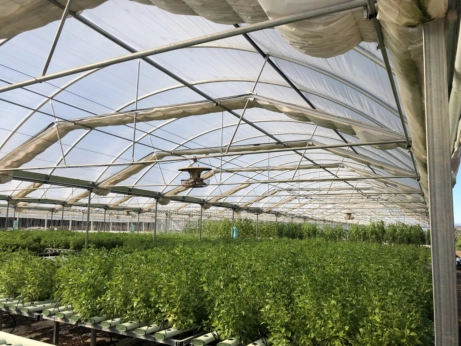
Contained in the Archi’s Acres greenhouse. (Picture courtesy AiSA)
With the profitable launch of the enterprise and a renewed sense of function, the couple appeared to increase their attain. In 2007, they established the Veteran’s Sustainable Agriculture Coaching program, since renamed as Archi’s Institute for Sustainable Agriculture (AiSA), an agricultural coaching program designed to transition energetic and former armed power members into growers. Like a boot camp of kinds, the six-week intensive program immerses college students in all facets of sustainable farming and entrepreneurship and ushers them into viable, agriculture-based careers.
Alongside the way in which, it’s additionally change into a platform—one which the Archipleys have leveraged to advocate for stronger authorities help in transitioning troops out of uniform.
A mission-driven angle
Lately, the unemployment price amongst veterans has dipped dramatically, usually falling under the nationwide price. However, in response to a examine commissioned by the Workplace of the Secretary of Protection (OSD), traditionally, vets beneath the age of 24 have confronted larger charges, which hit 29 p.c in 2011. The hole closes shortly, nevertheless, with age and trip of uniform, the report suggests, and with correct training and coaching, former service members are fast to beat ability deficits.
“[Those] leaving the army want a brand new function,” says Jeanette Lombardo, govt director of Farmer Veteran Coalition. The non-profit group helps veterans of their transition to agricultural careers and offers tuition grants to a number of coaching packages, together with AiSA. The armed forces instill “grit and a mission-driven angle,” she says, so the difficult nature of farming—the climate, pests and illness, the market—is commonly a very good match.
Service members additionally are typically properly versed in know-how, Lombardo notes, making abilities equivalent to piloting drones readily transferable to the climate-smart and precision ag sectors. And disabled veterans are simply as succesful, she provides, notably in advertising and marketing, logistics, distribution and compliance. “It’s an enormous expertise pool.”
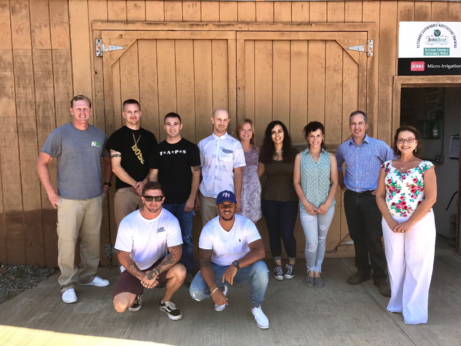
Colin Archipley (far left) and Karen Archipley (far proper) with a latest crop of scholars. (Picture courtesy AiSA)
The armed power’s emphasis on management coaching additionally helps stoke an entrepreneurial spirit. With a full army profession beneath their belt, “many vets need to be their very own boss,” says Tony Lattner, AiSA’s director of training and a retired Marine, “or [move on to] some sort of supervisory position.” He notes that of the 600 or so program graduates, greater than two-thirds both personal their very own farm or enterprise or handle an operation.
Together with educating agronomics, soil well being and sustainable farming practices, AiSA locations a giant emphasis on growing an agriculture-related enterprise. Over six weeks, the curriculum covers the complete seed-to-market course of together with entry to financing, meals security and constructing a marketing strategy round a farming operation. This system, which can be open to civilians, moved utterly on-line in 2020 through the COVID-19 pandemic to raised accommodate service members unfold all through the world. (Native college students nonetheless have the choice of extra, on-site coaching.)
The category culminates in a last examination and a Shark Tank-style pitch to a jury of meals professionals, business leaders and buyers. Along with farming, graduates have gone on to launch profitable ventures equivalent to a sequence of empanada shops in San Diego and a customized meat-processing facility serving small-scale ranchers in Lancaster, Kentucky.
The quick tempo interprets to a few hours of lessons twice per week and round 5 hours of every day studying and assignments. “It’s like a full-time job,” says Arlet Galindo, a present scholar. A human sources specialist within the Air Drive, she’d been stationed in Turkey for her last project and has been juggling her research whereas settling into life again residence in Los Angeles. However group, construction and time administration include the territory, she says. “That’s the army mentality—you simply need to get it completed. Failure will not be an choice,” she provides with amusing.
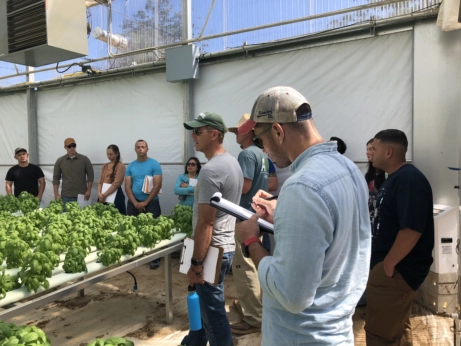
The AiSA program locations a giant emphasis on growing an agriculture-related enterprise. (Picture courtesy AiSA)
Galindo is certainly one of numerous college students within the 15-person class attending the course by SkillBridge, a DoD profession transition program. Established in 2011, it permits service members to amass civilian work expertise by coaching, internships and apprenticeships through the last 180 days of their enlistment. Though the positions are unpaid, troops are relieved of their army duties and obtain pay and advantages all through the transition interval.
The scaffolding is crucial to post-service success, says Karen Archipley. Earlier than SkillBridge, troops had been being pushed out of the army with little civilian expertise and a variety of vulnerability. “Folks typically took any job they might get as a result of that they had households to help or medical must cowl,” she says, recalling an early AiSA graduate who attended the category whereas homeless. In 2013, in a plea to bolster profession transition help for veterans, the Archipleys introduced his story and different comparable instances to then-OSD director Frank DiGiovanni—main the White Home to later acknowledge their efforts.
A brand new name to service
In 2016, AiSA grew to become a university credit score program by Cal Poly Prolonged Extension, a transfer that allowed service members to faucet their GI Invoice advantages for tuition. However as of final 12 months, a brand new partnership with the College of Minnesota Crookston offers program graduates a completely accredited agricultural certificates—a credential that equates to a 12 months’s price of working expertise when making use of for the USDA’s Farm Service Company’s (FSA) Starting Farmer mortgage.
Together with serving to college students leverage their army background to entry capital, this system additionally emphasizes market viability. As a course requirement, college students submit a complete marketing strategy on the finish of the time period—one that may be handed over to a mortgage officer or used to draw buyers. “The entire thought is that their [venture] is sustainable, each financially and resource-wise,” says Lattner, the academic director. “If it’s important to get a second job to run the farm, it defeats the aim.”
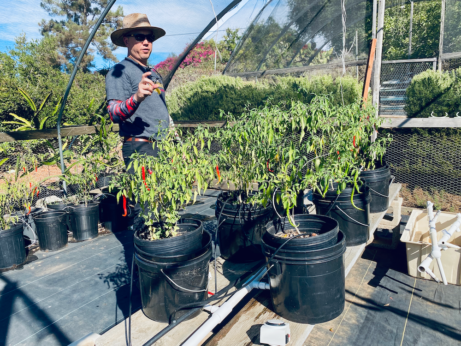
Tony Lattner factors out scholar initiatives. (Picture: Naoki Nitta)
Samantha Stephens, a latest AiSA graduate winding down a decade-long profession within the Marines, was startled to seek out out what it will take to run her husband’s household ranch in Georgia. Whereas the mom of two—with a 3rd on the way in which—will focus on parenting for the following few years, the couple’s long-term plan is to broaden the two-acre llama, goat and sheep farm to incorporate cows, chickens and a greenhouse. Understanding the breadth of compliance, taxes and rules “opened my eyes to how a lot we’ll want to provide to justify doing the enterprise,” she says.
Nonetheless, college students see their service background as an apt segue to farming. There are apparent parallels in decision-making and prioritization, says Grant Taube. The present scholar and Osprey pilot is hanging up his wings after 20 years within the Marine Corps to change into an avocado and specialty crop farmer outdoors of San Diego. Regardless of a really completely different skilled tempo, he says, the method is analogous. “Whether or not it’s water, time or cash, you consistently need to resolve, ‘how am I going to greatest expend this useful resource?’”
And, in the end, many service members see farming as one more calling. Erick Raymundo-Vidrio, an plane technician retiring from a seven-year profession within the Air Drive, is planning to start out a container farm. By bolstering meals safety for his neighborhood, he says, “I nonetheless really feel like I’m answering a name to serve. Simply at a smaller scale.”
[ad_2]
Source link


